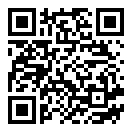Pages:
173-193
Receive Date: 2026/02/06
Accept Date: 2026/02/06
Abstract:
It is common place to consider feelings as private; but Wittgenstein disagrees. He believes such an idea leads to agnosticism and solipsism. According to the common understanding, feelings are private in two senses: 1. in an epistemological sense, which has two aspects: a) only an individual can know one’s own feelings; b) no one can know others’ feelings (Wittgenstein believes that the first aspect is meaningless and the second one is wrong). 2. The second sense is related to “having”, that is, each person has one’s own feelings; therefore, there are no similar feelings in two different persons (Wittgenstein insists that this sense is wrong too).
This article tries to show that Wittgenstein considers the privacy of feelings a merely grammatical subject, without designating a private matter. Of course, he thinks that feelings can be private as far as they remain secrete and have no external expression.
چکیده و کلیدواژه فارسی (Persian)
Title :نگاهى به بازى زبانى احساسات
Abstract:
پندار غالب آن است که احساسات خصوصىاند؛ امّا ویتگنشتاین با این پندار مخالف است، زیرا اعتقاد دارد: چنین تلقّىاى به شکّاکیت و سولیپسیزم منتهى مىشود. بنابه برداشت رایج، احساسات در دو معنا خصوصىاند: 1. معناى اوّل که با مسئله معرفت سروکار دارد، داراى دو جنبه است: الف) هرکسى تنها خودش مىتواند به احساسات خود یقین و شناخت پیدا کند؛ ب) افراد هرگز نمىتوانند از احساسات خصوصى دیگران آگاهى یابند (ویتگنشتاین نشان مىدهد که وجه اوّل بىمعناست و وجه دوم نادرست.) 2. معناى دوم با «داشتن» مرتبط است؛ برطبق این معنا، هرکسى احساس مخصوص به خود را دارد. و از اینرو، نمىتوان دو احساس مانند هم و شبیه به هم داشت (ویتگنشتاین نادرستى این معنا را نیز نشان مىدهد.) مقاله حاضر درصدد است نشان دهد که از نظر ویتگنشتاین، فقط به لحاظ دستور زبانى مىتوان گفت که احساسِ هرکسى تنها به خود او تعلّق دارد؛ نه اینکه این موضوع حاکى از امر خصوصى باشد. البته احساسات از این جهت که به صورت راز باقى بمانند و هیچ نشانه بیرونى از خود بروز ندهند، مىتوانند خصوصى باشند.
References:
- ـ پیرس، دیوید، ویتگنشتاین، ترجمه نصراللّه زنگویى، تهران، سروش، 1379.
-
- ـ حجت، مینو، بىدلیلى باور: تأمّلى در باب یقین ویتگنشتاین، تهران، هرمس، 1387.
-
- ـ مکگین، مارى، ویتگنشتاین و پژوهشهاى فلسفى، ترجمه ایرج قانونى، تهران، نشر نى، 1382.
-
- ـ هکر، پیتر، ماهیت بشر از دیدگاه ویتگنشتاین، ترجمه سهراب علوىنیا، تهران، هرمس، 1382.
-
- ـ ویتگنشتاین، لودویگ، برگهها، ترجمه مالک حسینى، تهران، هرمس، 1384.
-
- ـ ـــــ ، پژوهشهاى فلسفى، ترجمه فریدون فاطمى، تهران، مرکز، 1380.
-
- - Baker, G.P., and P.M.S. Hacker, 1980, Wittgenstein: Understanding and Meaning, Volume 1 of an Analytical Commentary on the Philosophical Investigations, Oxford, Blackwell, 2005.
-
- - Glock, Hans-Johann, A Wittgenstein Dictionary, Oxford, Blackwell, 1996.
-
- - Hacker, P.M.S, "Ludwig Wittgenstein" in: A Companion to Analytic Philosophy, ed. by A. P Martinich & David Sosa, Oxford, Blackwell, 2005.
-
- - _______ , Insight and Illusion: Themes in the Philosophy of Wittgenstein, Oxford, Clarendon Press, 1972, 2nd revised edition, 1986.
-
- - Kenny, Anthony, Wittgenstein, Oxford, Blackwell, 1973.
-
- - McGinn, Routledge philosophy guidebook to Wittgenstein and the Philosophical investigations, London, Routledge, 1997.
-
- - Stern, David. G, Wittgenstein on Mind and Language, New York, Oxford University Press, 1995.
-
- - _______ , Wittgenstein's Philosophical Investigations: an introduction, Cambridge, Cambridge University Press, 2004.
-
- - Wittgenstein, Ludwig, Philosophical Investigations, tr. by G. E. M. Anscombe, Oxford, Blackwell, 1967.
Cite this article:
RIS
Mendeley
BibTeX
APA
MLA
HARVARD
VANCOUVER
APA | MLA | HARVARD | VANCOUVER
, Mohammad Ali, , Fatemeh.(2026) A Glimpse at the Language Game of Feelings. Ma`rifat Falsafi, 8(3), 173-193
APA | MLA | HARVARD | VANCOUVER
Mohammad Ali ; Fatemeh ."A Glimpse at the Language Game of Feelings". Ma`rifat Falsafi, 8, 3, 2026, 173-193
APA | MLA | HARVARD | VANCOUVER
, M, , F.(2026) 'A Glimpse at the Language Game of Feelings', Ma`rifat Falsafi, 8(3), pp. 173-193
APA | MLA | HARVARD | VANCOUVER
, M, , F. A Glimpse at the Language Game of Feelings. Ma`rifat Falsafi, 2026; 8(3): 173-193









